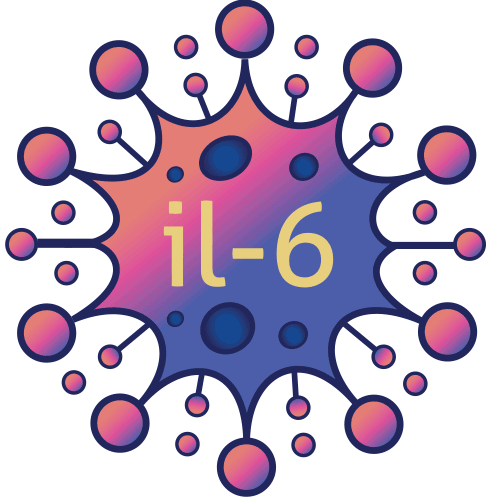Autism Spectrum Disorder (ASD): The Link to IL-6 Levels
- From The Mind of AI

- Nov 18, 2024
- 3 min read
Updated: Dec 30, 2024

Autism Spectrum Disorder (ASD) is a neuro-developmental condition characterized by challenges in social communication, repetitive behaviors, and sensory sensitivities. Emerging research highlights the role of Interleukin-6 (IL-6), a pro-inflammatory cytokine, in neuroinflammation and its impact on brain development and function in individuals with ASD.
Elevated IL-6 levels have been linked to increased behavioral and cognitive challenges, as well as the exacerbation of symptoms in autism. Understanding and managing IL-6 levels may offer new pathways for improving outcomes and quality of life for individuals with ASD.
What is IL-6?
IL-6 is a cytokine involved in immune response and inflammation. While it plays a vital role in regulating the immune system, excessive levels of IL-6 can contribute to neuroinflammation and immune dysregulation, which are often observed in individuals with ASD. Elevated IL-6 levels may influence brain development, neural connectivity, and behavior.
IL-6 and Autism Spectrum Disorder
Studies have shown that elevated IL-6 levels in ASD are associated with:
Neuroinflammation: IL-6 promotes inflammation in the brain, affecting neural pathways involved in behavior and cognition.
Altered Brain Development: High IL-6 levels during prenatal or early development may disrupt the formation of healthy neural networks.
Behavioral Challenges: Elevated IL-6 is linked to increased irritability, social withdrawal, and repetitive behaviors.
Cognitive Impairments: IL-6 may affect areas of the brain responsible for learning, memory, and executive function.
Comorbid Conditions: High IL-6 levels are associated with gastrointestinal issues, immune dysregulation, and sleep disturbances, which are common in individuals with ASD.
Supplements for Reducing IL-6 Levels in Autism Spectrum Disorder
Supplement | Benefits | Recommended Dosage |
NAD+ | - Reduces IL-6 production and systemic inflammation.- Enhances mitochondrial function and cellular repair.- Improves energy levels and brain resilience. | 300 mg to 600 mg daily |
Omega-3 Fatty Acids | - Provides anti-inflammatory effects and supports brain development.- Improves neural connectivity and reduces neuroinflammation. | 1,000 mg to 2,000 mg daily |
Vitamin D | - Modulates immune function and supports healthy brain development.- Reduces IL-6-driven inflammation. | 2,000 IU to 5,000 IU daily |
Curcumin | - Inhibits IL-6 and TNF-alpha production.- Reduces oxidative stress and neuroinflammation. | 500 mg to 1,000 mg daily |
Additional Key Supplements for Autism
Supplement | Benefits | Recommended Dosage |
Magnesium | - Reduces irritability and promotes relaxation.- Lowers IL-6 production and supports brain health. | 300 mg to 400 mg daily |
Quercetin | - Inhibits IL-6 signaling pathways and reduces oxidative stress.- Supports gut health and immune balance. | 500 mg to 1,000 mg daily |
N-acetylcysteine (NAC) | - Reduces oxidative stress and supports detoxification in the brain.- May improve behavioral symptoms. | 600 mg to 1,200 mg daily |
Probiotics | - Supports gut-brain health and reduces systemic inflammation.- May alleviate gastrointestinal symptoms common in ASD. | Varies by strain |
NAD+ and Its Benefits for Autism Spectrum Disorder
NAD+ is emerging as a potential supportive therapy for managing ASD-related challenges:
Reduces Neuroinflammation: NAD+ inhibits IL-6 and other inflammatory cytokines, reducing brain inflammation.
Supports Brain Development: Enhances mitochondrial function, which is critical for healthy neural connectivity and energy metabolism.
Improves Behavioral Symptoms: By reducing oxidative stress and inflammation, NAD+ may help alleviate irritability, repetitive behaviors, and sensory sensitivities.
Promotes Cellular Repair: Supports the repair of neurons affected by inflammation and oxidative damage.
Lifestyle Modifications to Reduce IL-6 Levels
Lifestyle Modification | Description |
Anti-Inflammatory Diet | Emphasize nutrient-rich foods like fruits, vegetables, lean proteins, and healthy fats while avoiding processed foods and sugar. |
Physical Activity | Encourage moderate exercise appropriate for the individual’s abilities to improve mood and reduce systemic inflammation. |
Stress Management | Reduce stress with techniques like mindfulness, yoga, or structured routines to lower IL-6 levels. |
Sleep Hygiene | Proper sleep supports immune regulation and reduces inflammatory markers like IL-6. |
Gut Health Optimization | Include probiotics and prebiotics to improve gut microbiome health, which can influence inflammation and brain function. |
Hope for Individuals with Autism
Targeting IL-6 levels in individuals with ASD offers a promising approach to managing symptoms and improving quality of life. By incorporating supplements like NAD+, lifestyle modifications, and supportive therapies, families and caregivers can reduce the inflammatory factors contributing to autism symptoms. Ongoing research into IL-6 modulation and neuroinflammation provides hope for more effective interventions in the future.




Comments